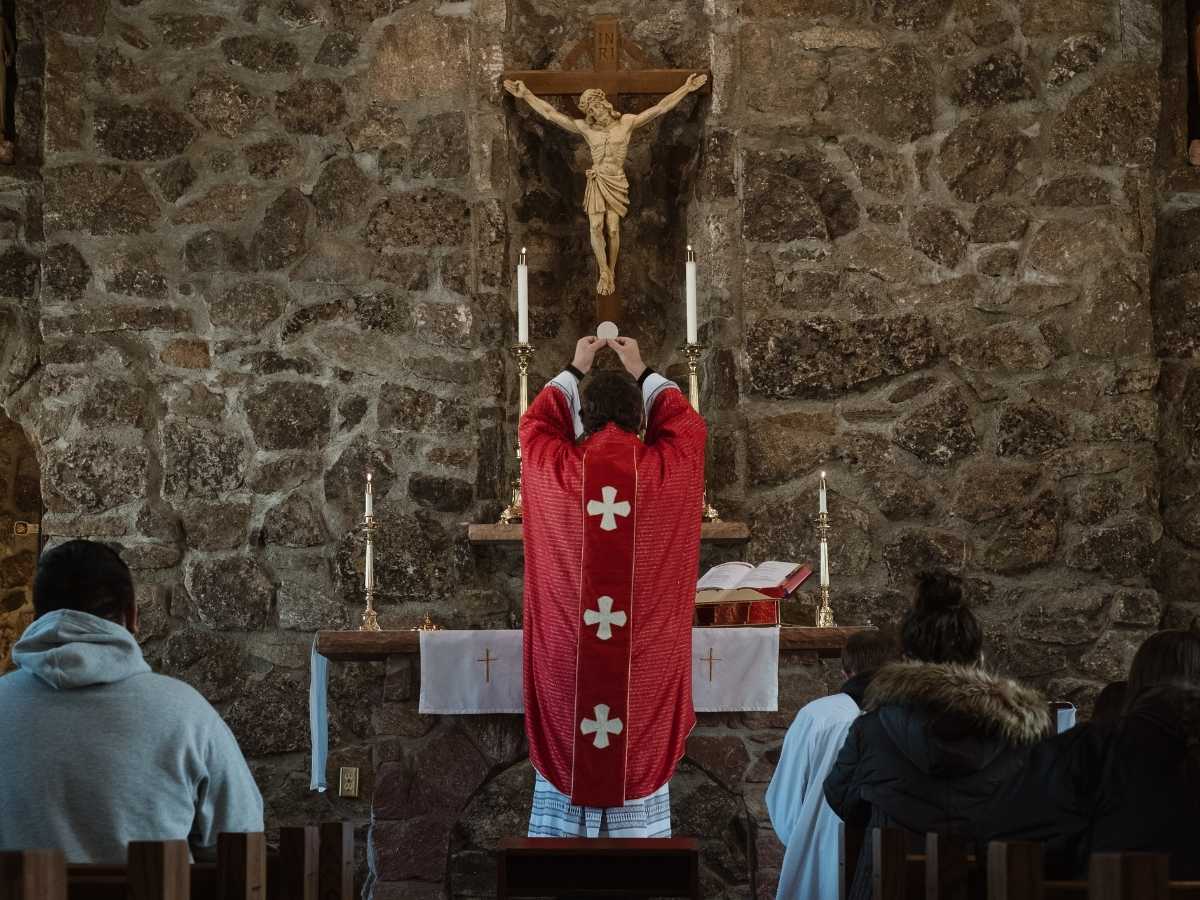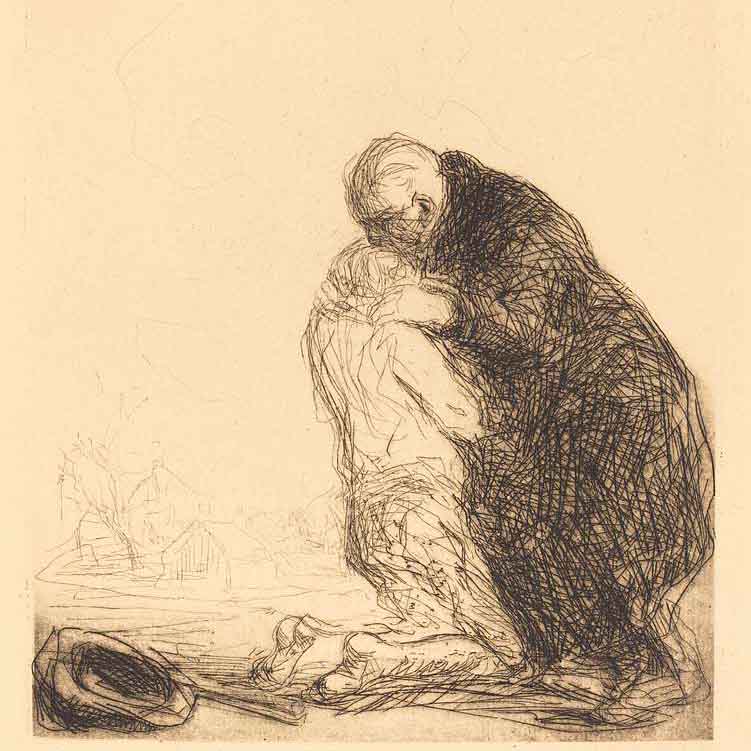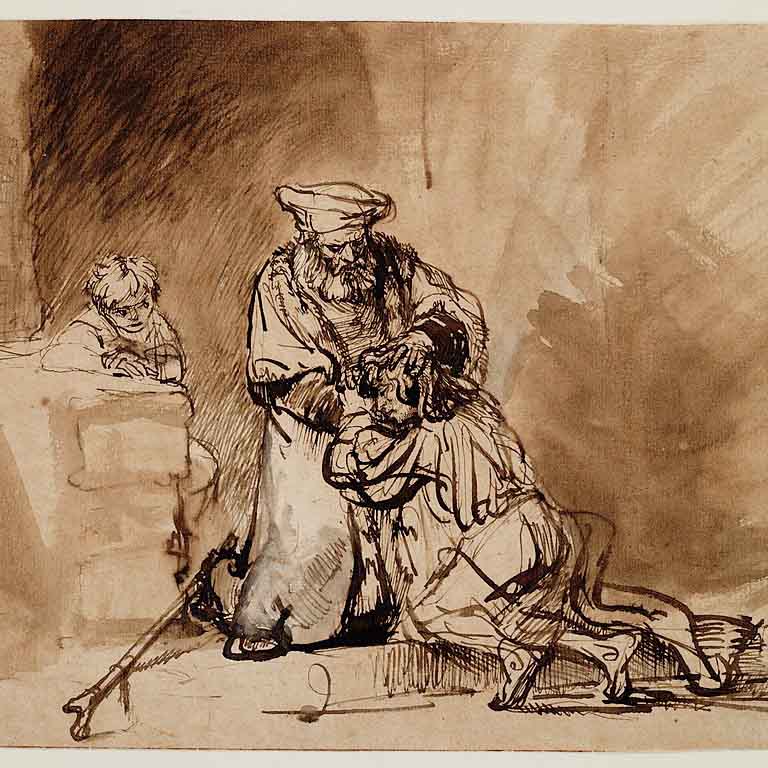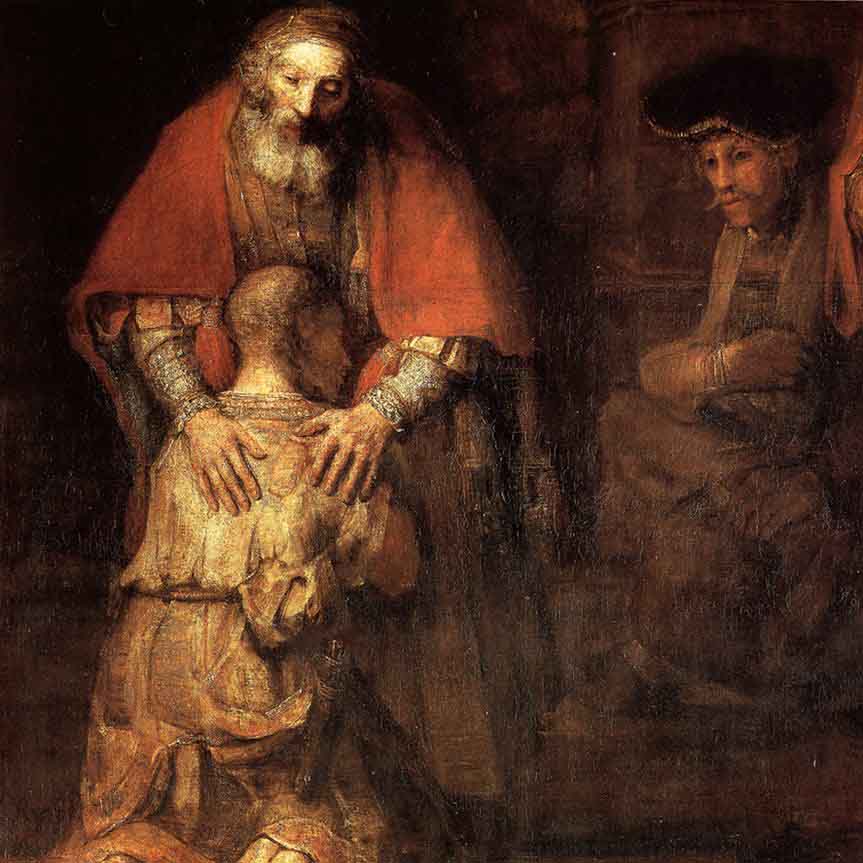By Joshua Lowe
The Eucharist is the greatest of all Sacraments. Its many names, such as the most Blessed Sacrament, the Holy Communion, and “the source and summit of Christian life” (CCC #1324) highlight its importance. This is because Catholics believe that every particle of the consecrated bread and every drop of the consecrated wine is fully Jesus Christ, body, blood, soul and divinity. The change from ordinary bread and wine into Jesus takes place at the consecration during Mass, when the priest, in the place of Jesus, lifts up the host and says, “this is my body” and when he lifts up the chalice and says, “this is my blood”.
Catholics are united to God in a mystically intimate way when we consume Jesus in the consecrated bread or wine or both during Holy Communion. It is like heaven in our hearts. This union with Jesus also unites believers to the rest of His Church, our brothers and sisters in Christ, and sustains us along our journey towards heaven. In Singapore, churches celebrate the Holy Mass daily but Catholics are obliged only to attend Mass on Sundays, the Lord’s day, and a few other days of obligation. Catholics may also adore the consecrated Host outside of Mass in a devotion called adoration.
Do Catholics really believe they are eating Jesus?
Yes! Jesus is really present in the Eucharist. What you see and eat is not bread and wine, but the Body and Blood of our Lord Jesus Christ! To our eyes, although they appear to be bread and wine, Catholics believe that Jesus is truly present, aided by faith. Confusing? Yeap! Which is why we say ‘aided by faith’ – we need to see this through the eyes of faith to recognize Christ’s presence in front of us.
Some of our Christian brothers and sisters believe that these are symbols of the body and blood of Christ, but not actually them. But we believe in the real presence because Christ said “This IS my body…this IS my blood…” (Jn 6: 51-55).
This distinction and understanding is important for several reasons. Jesus doesn’t offer this metaphorically, but literally. This is the living food that Jesus offers himself as at every mass, every day, so that we can be more like him in the way we live, and to sustain us as we go through life. That links to the invitation to be in union with Christ – completely! The eucharist is also known as Holy Communion. In this, Jesus gives himself to us through his body. We are also united to him when we accept and consume him! This is the most intimate that we can ever be with Jesus, because we literally become one flesh with him in the Eucharist.
Who can receive the Eucharist?
Who/when might we receive the body and blood of Jesus? Only baptised Catholics who are in a state of grace (i.e not in a state of mortal sin) may receive the Eucharist! In receiving the Eucharist, one is saying to God “I am ready to receive you whole-heartedly, and I am also ready to give myself to you whole-heartedly”. When one has not been received into the Catholic Church, he is not prepared to receive and give of himself to Jesus whole-heartedly. The same is when one is in a state of grave sin, and he will be guilty of profaning the body and blood of the Lord (CCC #1385).
The transformation of bread and wine into the body and blood of Jesus is known and taught by the Catholic Church as Transubstantiation. While the word transubstantiation itself is not found in the bible, in the Gospel of John 6:48-66, Jesus said to his disciples and the crowd: “ …my flesh is true food, and blood is true drink. Whoever eats my flesh and drinks my blood remains with me and I in him.” Later, in the narrations of the Last Supper, Jesus takes the bread and wine and says “This is my body…This is my blood…do this in memory of me”. (Mt 26: 26-30; Mk 14:22-26; Lk 22: 14-20). After Jesus had first told his followers to eat his flesh and blood in John, many of them were shocked and could not accept this teaching. As a result, many of his disciples left and no longer accompanied him (Jn 6:66). Had Jesus only meant this symbolically, it probably wouldn’t have caused such a big upset and scandal, and his disciples would not have a problem accepting this teaching. The disagreement with Jesus’ and Church teaching was not just in Jesus’ time, but also throughout history, and is a key difference in Protestant theology after the Protestant Reformation.




